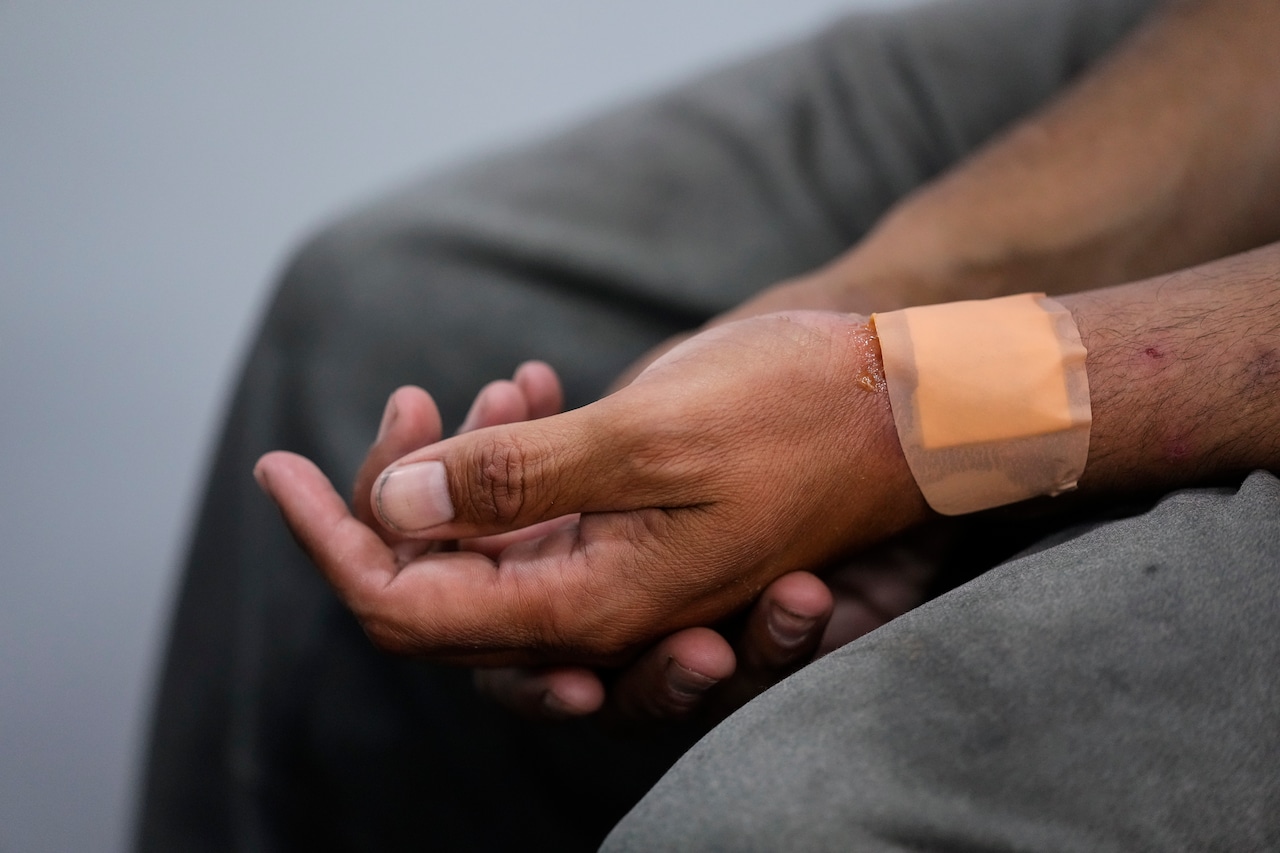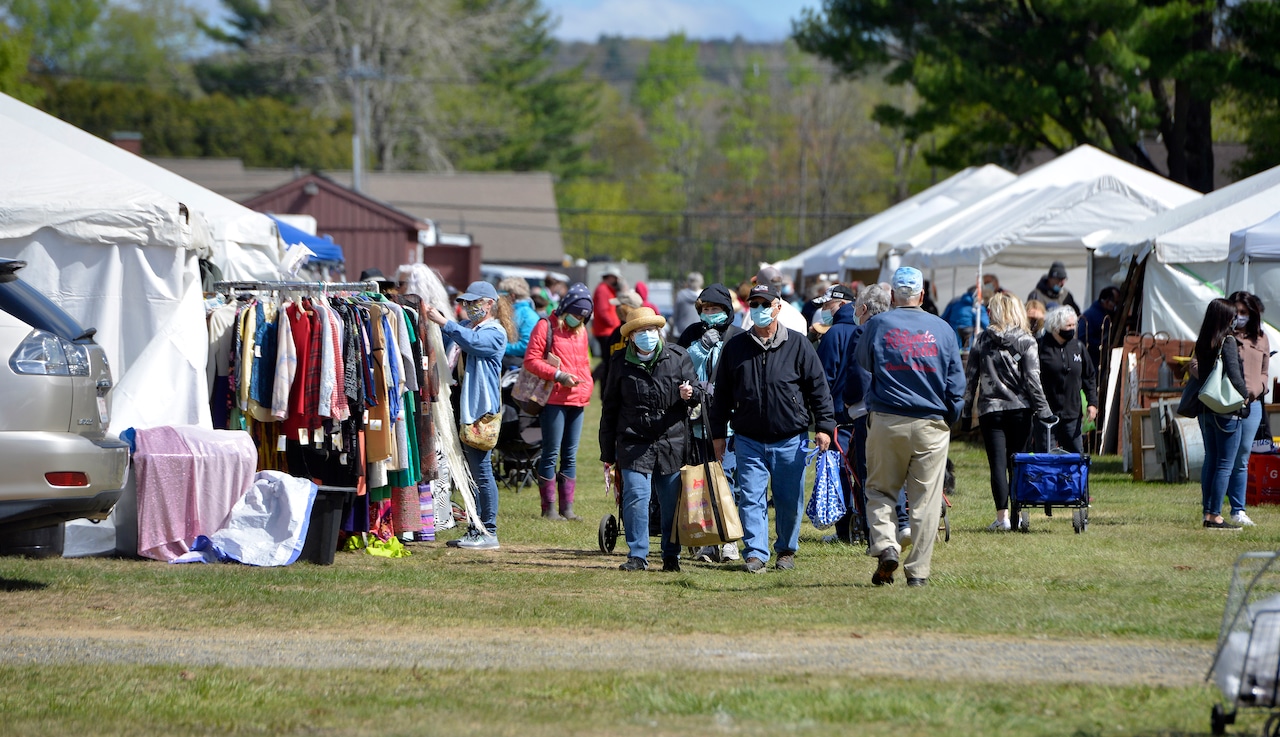
As an addiction doctor, Ruth Potee says she misses heroin.
It might sound tongue-in-cheek. But the state’s drug supply was safer and purer, she said, when the opioid made from morphine was the mainstream injectant — before lab-manufactured fentanyl all but replaced it, and everything started becoming more adulterated.
Today, the list of contaminants detected in fentanyl and other drugs is amassing. Gathering a stronghold in the Northeast is a dangerous veterinary tranquilizer called xylazine, or “tranq.”
Data shows drug users in Western Massachusetts are being disproportionately impacted by xylazine, which is a non-opioid central nervous system depressant that has powerful sedative properties and isn’t responsive to the overdose reversal medication naloxone.
— Read more: What is ‘tranq’ and why do police carry wound care kits because of it?
In addition, it can cause necrotic wounds anywhere on the body that often mystify medical professionals. In the most severe of cases, if a wound is left untreated, it can lead to amputation.
Potee, an addiction expert in Western Massachusetts who wears many hats at the Behavioral Health Network, Baystate Health and Franklin County House of Corrections, said xylazine has become “ubiquitous” in her area of the state.
“All of my nurses at every level of care have become wound experts, and that was not true four years ago,” she said. “This is a whole different beast.”
Xylazine is typically added to fentanyl, and sometimes cocaine, so people often use it unknowingly. It can send drug users throttling deeper into addiction, experts say — a vicious cycle of trying to avoid what is described as excruciating withdrawal that has a much quicker onset.
An analysis by MassLive of drug-checking sample results from Brandeis University’s Street Check program shows the majority of xylazine-positive samples in Massachusetts in 2024 thus far are coming out of Holyoke, Pittsfield and North Adams.
As of April 25, according to Street Check, these were the percentages of xylazine detections for first quarter of 2024 (Jan. 1-March 31) in the following Western Massachusetts and Berkshire communities:
— Chicopee: 100% of five samples
— Greenfield: 82% of 17 samples
— Holyoke: 36% of 91 samples
— North Adams: 81% of 36 samples
— Northampton: 50% of 24 samples
— Pittsfield: 73% of 30 samples
— Springfield: 60% of 10 samples
‘We’re kind of a waypoint’
U.S. Drug Enforcement Administration officials have long known that Western Massachusetts, because of the region’s extensive interstate highway network, is used as a staging area for distribution into the rest of New England.
“The main problem that we have is we’re kind of a waypoint,” said Holyoke Police Sgt. Joseph Zurheide. “We’re right in the middle of the Mass Pike, 391, 91. A lot of these big mills with tranq and heroin or fentanyl coming up from New York, it comes right up 91.”
Drugs dispersed throughout the Northeast are typically brought in from New York, regarded as the most significant heroin market and distribution hub in the U.S., according to the DEA’s 2020 National Drug Threat Assessment.
Zurheide said police in Holyoke also intercept mail parcels, sometimes from Puerto Rico, containing xylazine.
The tranquilizer, which isn’t currently listed under the U.S. Controlled Substances Act, is a desired additive for drug traffickers because it makes fentanyl more potent and costs much less. Traffickers can order xylazine online through Chinese wholesale distributors for as low as $20 a kilo, Zurheide said.
Statewide, of 486 drug samples tested between Jan. 1-March 31 through the Streets Check program, 42% were found to contain xylazine (205 out of 486 samples), the highest percentage Massachusetts has seen yet.
@masslivenews There’s an emerging contaminant in Massachusetts’ drug supply that can cause serious wounds. It’s called xylazine, or ‘tranq.’ Because of it, wound care is becoming a critical component of healthcare for people who use drugs. Here’s an example of a tranq wound care kit and how it should be used, courtesy of the Beverly Police Department. #fyp #foryou #tranq #xylazine ♬ original sound – MassLive News
A project out of Brandeis’ Opioid Policy Research Collaborative, Street Check utilizes partnerships across the state for standardized community drug checking.
Partnering drug checking sites are located in Pittsfield, North Adams, Greenfield, Northampton, Holyoke, Worcester, Lawrence, Gloucester, Lynn, Cambridge, Boston, Quincy, Brockton, Fall River, New Bedford, Mashpee and Hyannis.
While different sites can have different criteria, the idea is that anyone can submit a drug sample at a testing location and then follow the results via a QR code.
In Holyoke, while police are focused on the street-level enforcement aspect — via an effort called Operation Safe Streets — they’re now dealing with a magnified public health issue, too, one that involves an adulterant that isn’t responsive to naloxone, known by its brand name Narcan.
“The problem for us and the users is it’s not an opiate,” Zurheide said. “Narcan will reverse the effects of the opiates, but it won’t reverse the tranq effects, which themselves can cause you to pass away. That’s one of our biggest worries. Lately we’ve been hearing (over the radio) three Narcans administered, four Narcans administered, with no effect.”
Encouraging, Zurheide said, is that the police department has seen “good success” with the pairing of officers and recovery coaches from the Gandara Center — a bilingual community-based behavioral health provider.
Responding to overdose calls and conducting follow-up visits in the community, the teams aren’t focused on enforcing laws or arresting people, he said, but rather offering support, resources, and avenues to rehabilitation and treatment.





